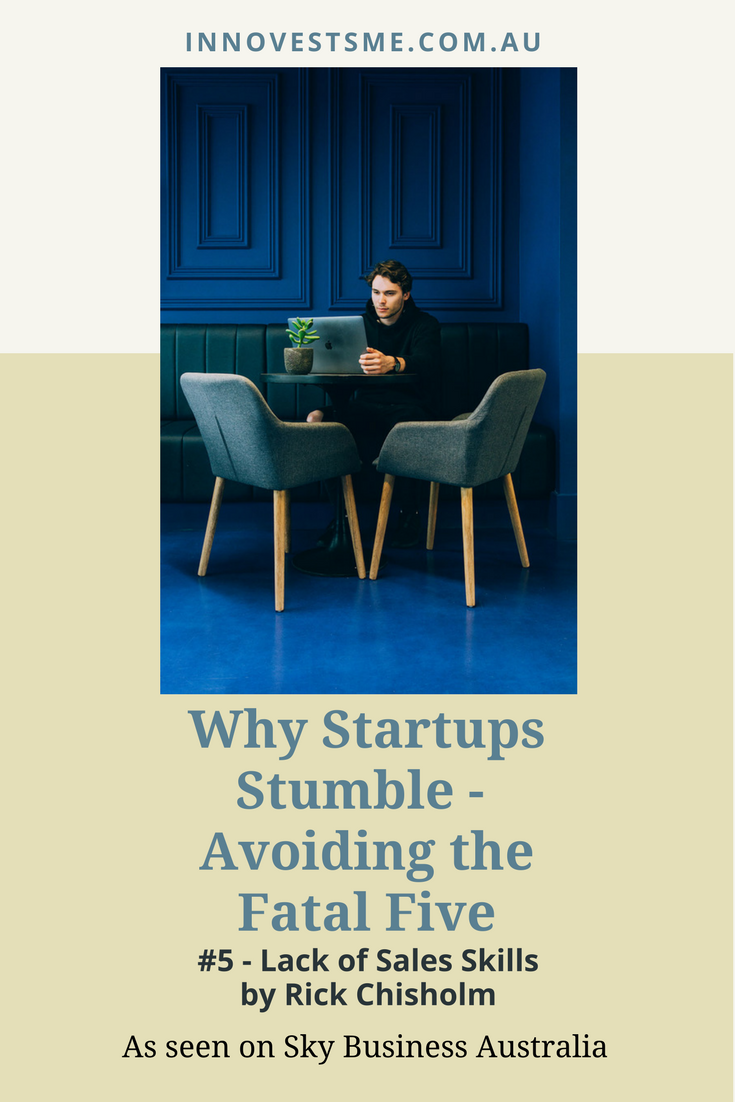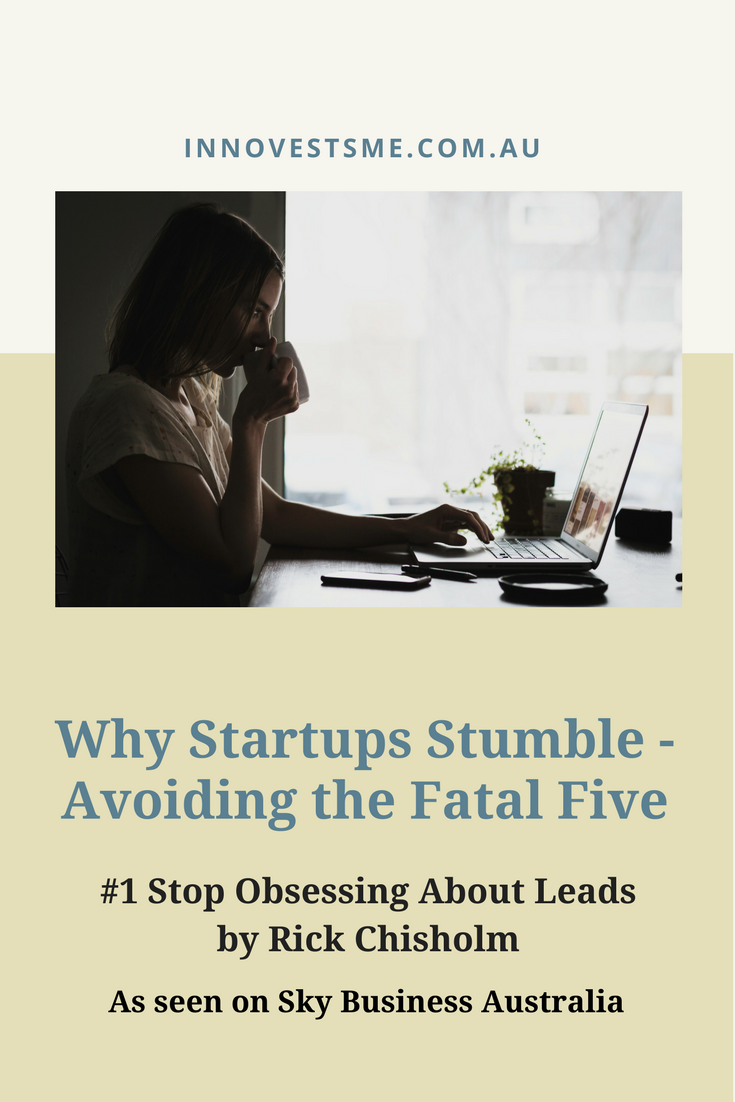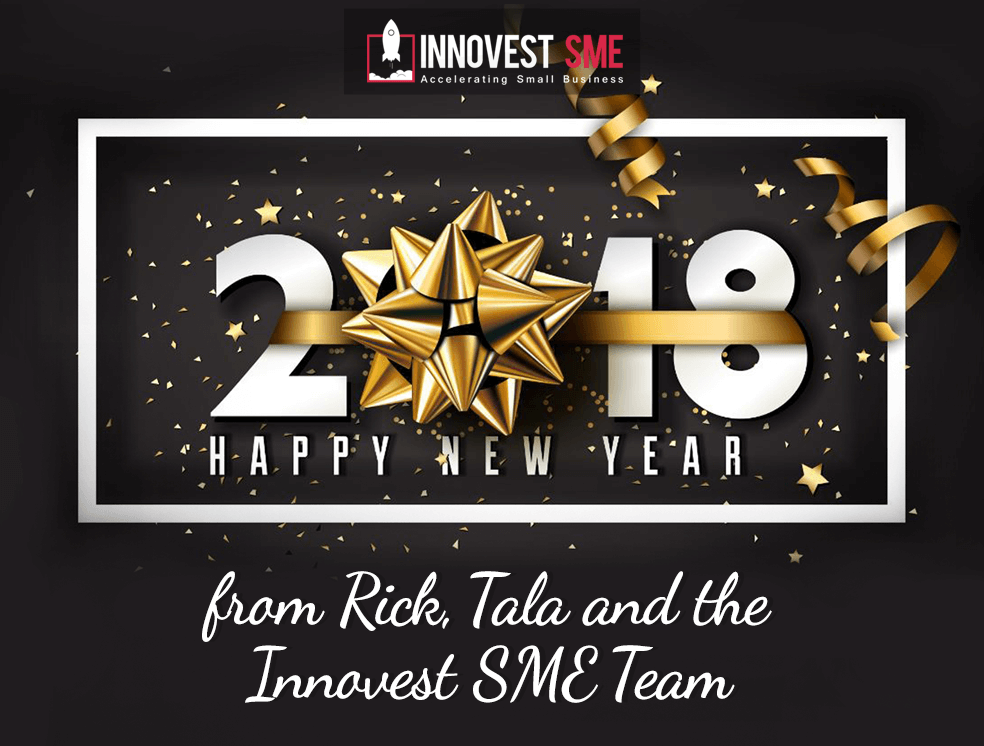Why Startups Stumble Avoiding the Fatal Five #5 – Lack of Sales Skills

“If you can’t sell yourself, then you probably can’t sell your product”, we’ve all heard some variant of this advice before, but it’s amazing the number sales professionals I encounter with decades of experience who seem to have a blind spot when it comes to presenting themselves.
Not many people are aware of this at a macro level, but we are in the midst of a small business explosion, the likes of which Australia has never seen before. Did you know that since the time of the 2000 Sydney Olympics, the number of small businesses in Australia has almost DOUBLED? In under 20 years.
In fact 97% of all Australian businesses can be categorised as “small” business. Globally 127,000 new businesses are started up EVERY DAY.
And looking to the future, surveys are showing that around 60% of young people today are planning on starting their own business. A big change from the days not so long ago when every smart graduate made a bee-line for the formal recruitment programs of the biggest corporations.
So the competition out there for scarce resources – whether it be capital, finance, media attention, or crucially CUSTOMERS – is effectively twice as strong as it was twenty years ago at this end of the market.

And the thing about small businesses, and startups in particular, is that the personal branding of the owner comes bundled up with the business’ brand also.
When I talk to small business owners about becoming “investable”, it’s important that they realise we aren’t just talking about the “idea”, their concept, or their product. More significant than any other single factor, investors make investments in the business OWNER, as much as their ideas.
At the end of the day, you can have the best new product in the world, but if the owner can’t sell the concept to potential investors, the concept is doomed never to get off the ground. Even then, 95% of small businesses that manage to secure funding still ultimately fail.
Because anyone can go into business. There’s no direct regulation, no certification required, no job interview to sit, the only person you have to convince is yourself. And you already think you’re pretty good, right? We all do, we are human.
What worries me is all those young people are going to be hitting the marketplace without any sort of formal sales training, and I can see this ending either quite badly for a lot of them OR the smarter ones will learn some very quick lessons about early failure.
Venture Capitalists, the fairy godmothers of the startup world, know, and in fact expect that on average, fully 15 out of every 20 companies they invest in is bound to fail. Another 4 out of that 20 will get lucky and approximately break even.
Venture capitalists in general expect that only one in every 20 firms they invest in will make a significant return on investment. They are of course banking on that return more than covering the bad 14, and in general this is how it works out in the real world too.
And one of the key dimensions venture capitalists are running their eye over is how well the applicant is able to pitch themselves and their business. Not because they favour a slick presentation, some of these people are more attuned to bulldust than anyone else I know. But because they know what a crucial determinant the sales ability of the business founder is in determining the ultimate success of startups.

So, let’s be clear I am NOT saying you need a sales background to become a small business owner. Sometimes that can be the worst thing of all. Frankly there are some very bad sales reps around who can coast by because they’re selling a great product with decades of experience.
What I am saying is that you need a sales MINDSET. You need to be able to think about all the public facing aspects of your business, and have a knack for listening to the collective message you are broadcasting through your brand.
The most practical bit of sales advice I can give anyone at any level of experience – and even the best sales reps always benefit from being reminded of this – is to always make sure you are selling the benefits of your business, rather than what most people are inclined to do – sell the features.
What I mean by that is that you should always be careful not to stop at the point where you’ve explained every genius feature of your new product sideways. Talking only about the product is the biggest mistake you can make in sales. That advertises to your listener that you are focussed only on your own interests, it turns the conversation into a transactional one. The listener starts to feel like they are being talked AT rather than TO, that they are being spun a line. It makes the sales process to transparent a part of the conversation.

Instead, small business owners and entrepreneurs should always take care to couch their spiel in their CUSTOMER’s language. All product have all sorts of different features, but it’s the actual real world benefit those features deliver to the customer that is what they are really buying.
So talking about your product features is of course perfectly fine, and perfectly necessary. But you should never stop there. “This couch is stain resistant” is the feature. But “so you’ll never worry about spillages, the fabric is going to look pristene for twenty years” is selling the benefit.
So whether it’s your product, your brand, your business, or yourself, any point at which you interface with the public, remember to say to yourself “this is a sales process”. Always be on your game, and never stop at the feature, add the extra sentence, make the link to the customer’s world. Sell the benefit to them.




